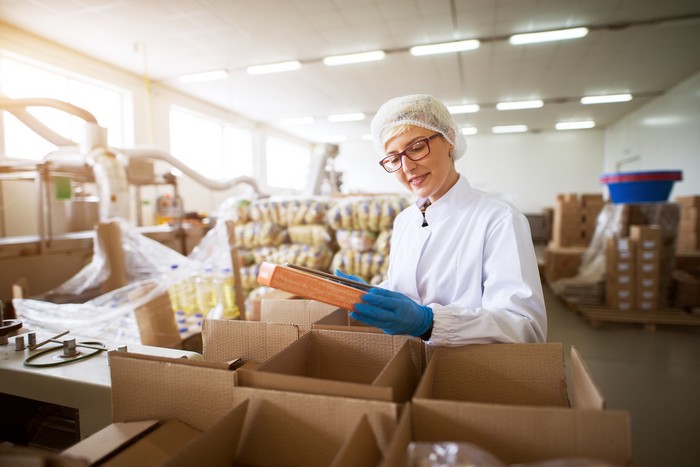Adapting to changing consumer behaviour in China

Packaging is everywhere; it protects much of the food we buy, and it is nearly impossible to avoid. Rather than trying to eschew packaging we can make it better – stronger, lighter and made from novel biomaterials. Packaging researchers around the world, including those at Scion, aim to do just that.
Scion’s packaging research is exploring new sustainable (renewable or more recyclable) materials for packaging that also meet technical needs such as strength. Part of this work is to ensure these materials comply with the complex world of food contact material regulations.
Is your packaging material transferring substances into your food?
Food safety is a major concern worldwide. More than ever consumers are seeking assurance that their food has been packaged in materials that are safe and don’t transfer any unintentional substances into food products.
Different countries have different standards for the materials that come into contact with food (known as food contact compliance). These rules are important for New Zealand because our export economy relies on shipping food.
Much of New Zealand’s export food is destined for China where consumers are very conscious of food safety issues.

Consumer preferences through COVID-19
The COVID-19 pandemic has had an undeniable effect on consumer perceptions about food safety. It has altered consumers’ purchasing behaviours and increased consciousness of food safety issues.
Research by the University of Otago has observed changes to the way Chinese consumers are thinking about and interacting with food. Changes include more in-home cooking and eating, increased consumption of health/immune-enhancing foods, and increased concern for food safety and sustainability especially in relation to products of animal origin. These changes could shift the market environment long-term, and New Zealand producers need to take steps to meet consumer expectations and seize new opportunities.
Researchers from Scion will be part of a new project with the University of Otago, AgResearch, Xi’an Jiaotong-Liverpool University (China), and China Agricultural University (Beijing, China) to explore how COVID-19 has affected Chinese consumer preferences (including their choice of packaging). Scion’s packaging research leader Dr Kate Parker says that the project will take a three-step approach, beginning with a look at changes in Chinese consumers’ attitudes post-COVID-19. Next, the team will seek to understand what New Zealand exporters need to know about the Chinese market; and then gauge Chinese consumers’ food and food packaging safety-related attitudes, practices and expectations in this new landscape.
Kate says, “We want to help New Zealand exporters develop new strategies on how to operate in the post-COVID-19 Chinese market”. This project will be completed late 2021.
